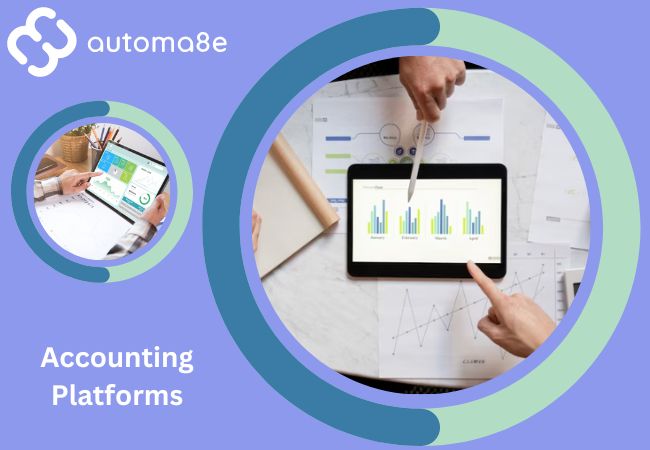In today’s fast-paced business world, effective financial management is essential for success. Small businesses and enterprises alike rely on accounting platforms to streamline their financial processes, maintain accurate records, and make informed decisions. With a plethora of accounting platforms available, choosing the right one for your business can be a daunting task. In this article, we will delve into the world of accounting platforms, exploring their features, benefits, and key considerations. By the end, you’ll be equipped with the knowledge needed to make an informed decision about the ideal accounting platform for your needs.
In this blog, we’ll explore:
- Understanding Accounting Platforms
- Types of Accounting Platforms
- Key Features to Consider
- FAQs
Understanding Accounting Platforms
What Are Accounting Platforms?
Accounting platforms, also known as accounting software or financial software, are specialized tools designed to help businesses manage their financial transactions, recordkeeping, and reporting. They offer a range of features to simplify accounting processes, including bookkeeping, invoicing, payroll management, and financial analysis.
Why Are Accounting Platforms Important?
Accounting platforms play a pivotal role in ensuring the financial health of a business. They not only save time but also reduce the risk of errors associated with manual accounting. Additionally, they provide valuable insights through financial reports, enabling businesses to make strategic decisions and plan for the future.
Types of Accounting Platforms
Cloud-Based Accounting Software
Cloud-based accounting software is hosted on remote servers, and accessible via the internet. It offers the advantage of real-time data access from anywhere, making it an excellent choice for businesses with remote teams or multiple locations. Examples include QuickBooks Online and Xero.
Desktop Accounting Software
Desktop accounting software is installed on a local computer and typically does not require an internet connection. While it offers robust features, it may lack the mobility of cloud-based options. Popular desktop software includes QuickBooks Desktop and Sage 50.
Industry-Specific Accounting Software
Some businesses may require industry-specific accounting software tailored to their unique needs. For instance, restaurants may opt for restaurant accounting software, while construction companies may choose construction accounting software.
Key Features to Consider
User-Friendly Interface
A user-friendly interface ensures that you and your team can quickly adapt to the software. Look for platforms with intuitive navigation and clear menu structures.
Scalability
Consider the scalability of the software. Will it accommodate your business’s growth and evolving needs? Scalable platforms are essential for long-term success.
Integration Capabilities
Check if the accounting platform integrates seamlessly with other essential tools, such as CRM software or e-commerce platforms. Integration enhances efficiency.
Selecting the Right Accounting Platform
Assess Your Business Needs
Begin by evaluating your business’s specific accounting requirements. Consider factors like the size of your business, the number of users, and the complexity of your financial transactions.
Budget Considerations
Accounting platforms come with varying price points. Determine a budget that aligns with your financial resources while ensuring you get the necessary features.
Trial Period
Many accounting platforms offer a free trial period. Take advantage of these trials to test the software’s suitability for your business before committing.
FAQs
The best accounting platform for small businesses depends on their specific needs. Popular options include Automa8e, QuickBooks Online, Xero, and FreshBooks.
Yes, many accounting platforms offer scalability, allowing you to upgrade to more advanced plans as your business expands.
Yes, there are free accounting platforms available, but they may have limitations in terms of features and scalability. It’s essential to assess your business’s needs and budget before opting for a free solution.
Conclusion
In conclusion, choosing the right accounting platform is a crucial decision for any business. It impacts efficiency, accuracy, and the overall financial health of the organization. By understanding your business’s needs, budget, and preferred features, you can make an informed choice that will serve your business well.
About Automa8e
Automa8e is an AI-powered accounting Platform and document management solution that empowers businesses in Singapore by delivering invaluable information and practical guides for a wide range of business functions and day-to-day operations. At Automa8e, our mission is to provide businesses with the knowledge and insights necessary to make intelligent decisions, enabling them to thrive and succeed. We are committed to sharing valuable information and aim to be the trusted partner that empowers businesses to achieve their goals through informed decision-making. With our comprehensive suite of tools and resources, we are dedicated to supporting businesses in Singapore on their path to success. Schedule a call now and discover how Automa8e can add value to your business.
